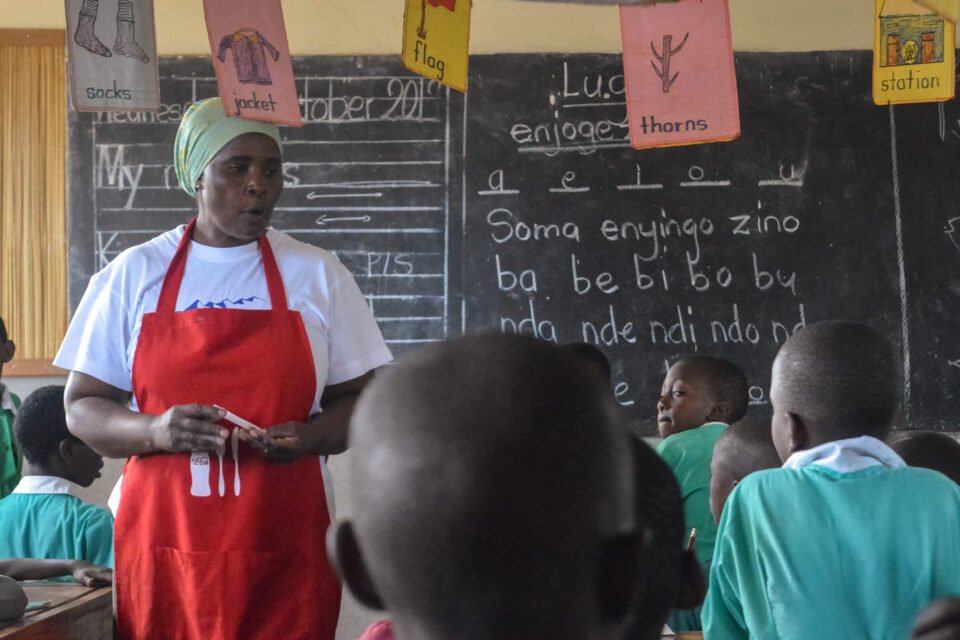Uganda is a highly multilingual country with over 40 different languages in active use. This linguistic diversity is a direct reflection of its rich ethnic makeup. While the official languages are English and Swahili, a variety of indigenous languages dominate daily life in different regions.
- English serves as the primary language for government, business, and education. It is a legacy of the country’s colonial past, and while it is widely spoken, especially by educated urban populations, it is not the first language for many Ugandans.
- Swahili was made Uganda’s second official language in 2005. It’s a key language for trade and communication in East Africa, and it’s also used by the military.
- Luganda is the most widely spoken indigenous language. It is the language of the Baganda people, who make up the largest ethnic group in the country. In the capital city of Kampala, you will hear Luganda everywhere, and many people will speak it alongside English.
- Other Major Languages: The country’s languages fall into a few major families. Bantu languages dominate the south and west and include Luganda, Runyankole, Lusoga, and Rutooro. In the north and east, Nilotic languages like Acholi, Lango, Teso, and Karamojong are commonly spoken.
This linguistic mix means that while you can get by with English, learning a few phrases in local languages like Luganda will go a long way in showing respect and connecting with locals.
Culture: A Tapestry of Ethnicities
Uganda’s culture is a vibrant mosaic of traditions from its more than 50 ethnic groups. These groups, each with their own unique customs, contribute to the country’s rich social and artistic life.
- The Baganda: As the largest group, their traditions are well-known. They have a deep respect for their monarchy, with the Kabaka (king) as a central cultural figure. Their traditional dress, the gomesi for women and the kanzu for men, is often seen at ceremonies and special events. The barkcloth, a fabric made from the bark of the Mutuba tree, is a unique Buganda craft.
- The Banyankole: Located in the southwest, the Banyankole are traditionally pastoralists, and their culture revolves around their long-horned cattle, which are a symbol of wealth and status. Their dances, like the Ekitaguriro, often mimic the graceful movements of their cows.
- The Acholi: In northern Uganda, the Acholi are known for their rich oral traditions and energetic dances, such as the Larakaraka, a courtship dance. Their history is passed down through proverbs, folktales, and music.
- Music and Dance: Across all ethnic groups, music and dance are an integral part of life. They are used for celebrations, storytelling, and rituals. Traditional instruments like the adungu (a harp-like instrument) and various types of drums are central to this expression.
Customs & Etiquette: Showing Respect
For a traveler, understanding and respecting Ugandan customs is essential. These social rules are a key part of the culture and will help you have a more meaningful and positive experience.
- Greetings: Handshakes are the most common greeting. For men, handshakes are firm, while for women, they might be softer. It is a sign of great respect to use both hands or to support your right elbow with your left hand while shaking. Always greet someone by asking, “How are you?” before jumping into a conversation.
- Dress Code: Ugandans are generally modest dressers, especially in rural areas and at religious sites. It is polite for travelers, especially women, to wear clothing that covers their shoulders and knees.
- Dining Etiquette: When you eat with your hands, always use your right hand. The left hand is considered unclean. It is also a sign of appreciation to finish the food you’ve been served.
- Respect for Elders: Elders and people in positions of authority are highly respected. Younger people and guests should greet them first and listen attentively when they speak. It is also polite to use titles like “Mr.” and “Mrs.” or “Ssebo” (sir) and “Nnalinya” (madam) in some regions.
- Public Behavior: Public displays of affection, such as kissing or hugging, are not common and can be considered inappropriate, particularly in rural areas. However, it’s common to see same-sex friends holding hands as a sign of close friendship.
- Time: Ugandans often have a relaxed approach to time, sometimes referred to as “African time.” While punctuality is appreciated for formal events, a more flexible schedule is common for social gatherings.

